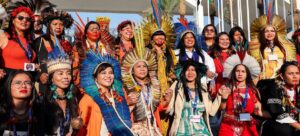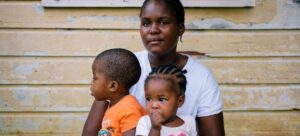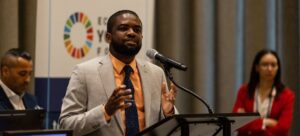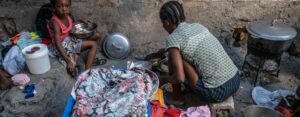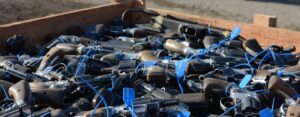Filippo Grandi, the UN High Commissioner for Refugees, and Volker Türk, the UN High Commissioner for Human Rights, issued a joint statement calling on the UK Government to reconsider its plan to transfer asylum seekers to Rwanda.
This arrangement seeks to shift responsibility for refugee protection, undermining international cooperation, Mr. Grandi added.
“The new legislation marks a further step away from the UK’s long tradition of providing refuge to those in need, in breach of the Refugee Convention,” he said. “Protecting refugees requires all countries, not just those neighbouring crisis zones, to uphold their obligations.”
Instead, the UK should take practical measures to address irregular flows of refugees and migrants, based on international cooperation and respect for international human rights law, the UN officials said.

Raises risks for asylum seekers
The asylum and immigration legislation, known commonly as the Safety of Rwanda bill, was tabled before Parliament alongside the UK-Rwanda Asylum Partnership Treaty after the UK’s Supreme Court found last year that the proposed transfer of asylum seekers to the African country would breach international and UK law.
The court’s decision had noted weaknesses in Rwanda’s system for determining individual asylum claims.
But, the bill and the treaty do not in practice overcome the protection gaps identified by the Supreme Court, the UN officials stated, adding that once enacted, the measures will restrict the UK courts from properly scrutinising removal decisions, leaving asylum seekers with limited room to appeal even if they face significant risks.
New bill sets ‘a perilous precedent’
Mr. Türk said the bill infringes on the rule of law.
“By shifting responsibility for refugees, reducing the UK’s courts’ ability to scrutinise removal decisions, restricting access to legal remedies in the UK and limiting the scope of domestic and international human rights protections for a specific group of people, this new legislation seriously hinders the rule of law in the UK and sets a perilous precedent globally,” the UN rights chief said.
He said it is critical to the protection of the human rights and dignity of refugees and migrants seeking protection that all removals from the UK are carried out after assessing their specific individual circumstances in strict compliance with international human rights and refugee law.
A fair, efficient and well-governed migration and asylum system is key to ensuring access to protection for those in need and enabling the return home of those with no lawful basis to remain, the UN officials said.
Acknowledging the challenges presented by the irregular movement of refugees and migrants, often in dangerous circumstances, the UN leaders nonetheless expressed grave concern that the legislation would facilitate transfers under the UK-Rwanda asylum partnership, with only limited consideration of their individual circumstances or any protection risks.
They called on the UK instead to pursue practical cooperation with countries along the routes that refugees and migrants take, to strengthen protection and offer real alternatives. This includes expanding safe and regular pathways to protection, they said.

Progressively restrictive laws
The UN officials pointed out that the new legislation is the third in a series of progressively restrictive laws that have eroded access to refugee protection in the UK since 2022, including through a ban on access to asylum or other forms of permission to stay in the UK for those arriving irregularly via a third country.
If implemented, the new bill would “pave the way for asylum seekers, including families with children, to be summarily sent to Rwanda to present their asylum claims, with no prospect of return to the UK”, they said.
The new bill will also drastically limit the ability for asylum seekers to challenge or appeal removal decisions, with decision makers and judges required to conclusively treat Rwanda as a “safe” country in terms of protecting asylum seekers, regardless of any evidence to the contrary, now or in the future, the UN officials said.
This situation is even more concerning given the legislation expressly authorises the UK Government to disregard any protective interim remedies from the European Court of Human Rights, the UN chiefs warned.


